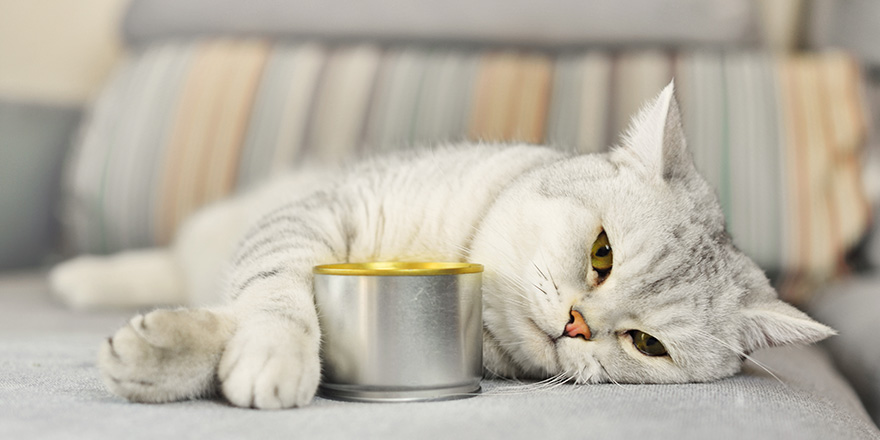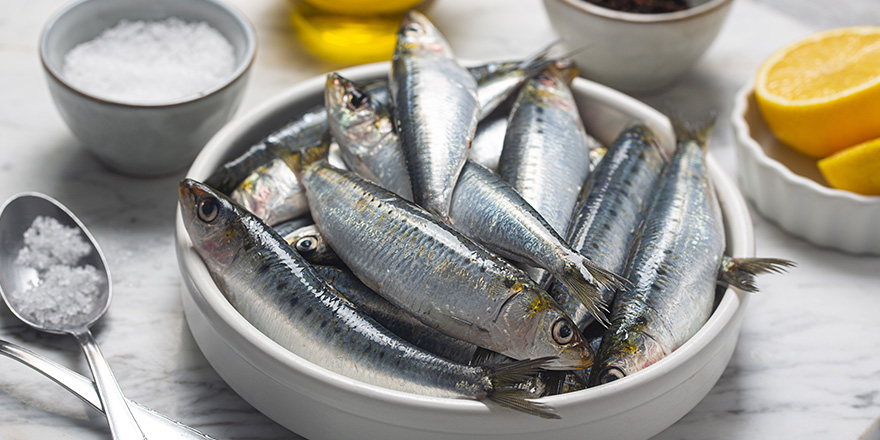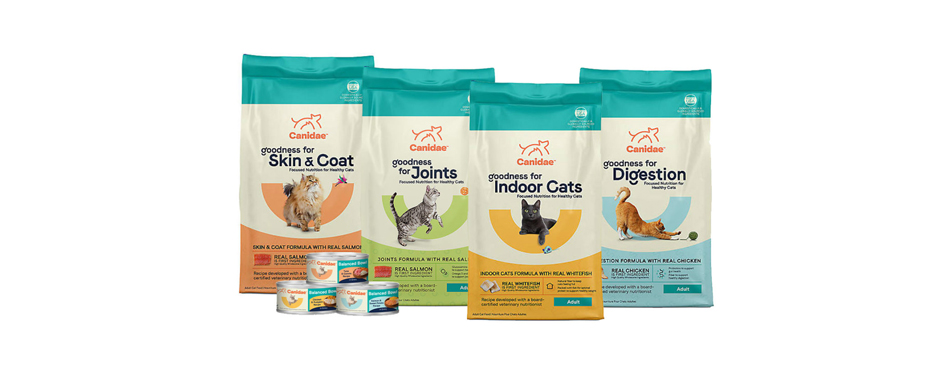The day may come when you need to make a quick run to the store for more of your cat’s food and have nothing to feed them in the meantime. When this happens, you can serve sardines to your cat in the same way you’d give them any other fish product. There are some rules that need to be followed when letting your cat eat sardines, though.
Can Cats Have Sardines?
Wondering if cats eat canned sardines? Cats love fish, and sardines, whether canned or fresh, are a great source of omega-3 fatty acids. They’re not often used in family meals, though you may see them as a pizza topping or an ingredient in pasta recipes. They’re also eaten by themselves because canned sardines are often stored in sunflower oil, which helps preserve them and adds to their taste.
If you’re going to feed sardines to your cat, we recommend buying the canned sardines that are stored in spring water because those that are stored in olive oil or sunflower oil have a much higher fat content, which won’t be good for your cat. High-fat foods can be a detrimental part of your cat’s diet, so they should be avoided where possible.
It’s fine to feed your can fresh, raw sardines or canned sardines. Both can help boost your cat’s immune system, and there are several other benefits that come with feeding your cat this type of raw fish, too.

What are the Benefits of a Cat Eating Sardines?
Happy to watch your cat eat canned sardines? You should know that there are actually a number of health benefits hidden behind these tightly-packed fish, which makes this kind of canned food unexpectedly good for your cats to eat. As everyone knows, cats are obligate carnivores. Part of a cat’s health relies on them eating the correct food, and that includes a healthy helping of meat and fish (yes, even canned fish). Sardines are packed with protein, even though our feline friends don’t really understand the need for a balanced diet, cats love sardines because they taste good and are satisfying for them to eat.
The protein that your kitty gains from eating cat food, or the occasional treat of a fresh fish, provides the nutrition that they need to support their fur, bones, muscles, heart, and immune system. Protein is a vital part of every animal’s diet, not just a human’s.
Other health benefits include brain support, a reduced chance of tumors and cancer, allergy relief, and even weight loss! Suffice to say that if your cat can eat fish, they should enjoy it every week.
What Happens if a Cat Eats Sardines?
Although sardines have many benefits, they can hurt your cat if you give them too many. Fish contain higher levels of heavy metals like mercury and other pollutants. If you overfeed your cat sardines, these harmful parts of the fish can affect their overall health. They may get off lightly with a bout of salmonella, but even an infection caused by this condition can lead to loose bowel movements, bloody stools, and vomiting.
Limit the amount of sardines that you’re feeding your kitty to one to two sardines a week. Though it’s okay to feed them a little more than this, it’s better to be safe than sorry.
Sardine Products Your Cat Can Eat
- Fresh sardines
- Cooked sardines (plain, no seasoning, and not cooked in oil or butter, etc.)
- Canned sardines in spring water
Sardine Products to Avoid
- Sardines packed in tomato sauce
- Canned sardines in oil (such as sunflower oil, olive oil, or soybean oil)
- Canned sardines in brine
- Dried sardines
- Smoked sardines
If you must feed your cat sardines in tomato sauce or oil, wash the fish first to get rid of the excess liquid.
Avoid sardines packed in brine altogether. Brine can cause sodium ion poisoning, which will mean taking your furry friend to the vet after witnessing a few scary symptoms.
Other Types of Fish to Feed Your Cat
- Tuna
- Salmon
- Ocean Whitefish
- Cod
- Halibut
- Flounder
Please be aware that some species of fish (such as tuna, sardines, and salmon) contain higher levels of mercury. In large enough doses, this can lead to mercury poisoning and may deplete your cat’s Vitamin E levels. As a pet owner, it’s your responsibility to get your feline friend the essential nutrients they need without risking their health through overfeeding “human foods”. A cat’s body is much smaller than a human’s, so be sure to find out how much sardine is too much.

How to Cook Sardines for Your Cat
Cooking sardines for your cat is incredibly easy. The best part is that you can cook several and store them for a couple of days without needing to cook more. This is great if you’re in a multi-cat household because too many sardines will ruin your pet’s diet. Sardines are oily fish, full of fat and sodium – pet owners should remember this when considering how many sardines to allow their cat to have.
To cook sardines, start by removing them from their packaging and preparing the fish. Thankfully, there’s little difference between preparing sardines and preparing other, larger fish. Make sure you remove any bones, as these could cause your cat to choke.
You could stop there and feed your cat raw sardines, but it is recommended to cook them to help your cat avoid bacterial infections or scombroidosis.
To cook a sardine for a cat, don’t use any oils or butter. Do not fry the fish, either. It’s best to oven bake a sardine or cook it on a grill for 3 to 4 minutes on each side. Sardines cook very quickly once the preparation part of cooking them is done.
FAQs:
You should only feed cats sardines once a week, giving them no more than two sardines at a time. Sardines are seen as a treat in a cat's diet, not something that should be given in large quantities or used to replace their regular meals.
Cats can still benefit from the existing essential vitamin levels in canned sardines, but the oil contains a lot of fat that they don't need in their diet. Excess fat like this can lead to heart disease and won't be beneficial to your pet's immune system. It's best to rinse the oil off or pat it off with a paper towel.
There are approximately 182 calories in one can of sardines that have been stored in spring water. Adult cats should only eat around 20 calories per pound of body weight, with the average adult cat weighing 10 pounds. That means you would be feeding your cat almost their entire day's worth of calories in a single can of sardines if you let them eat the whole thing.







